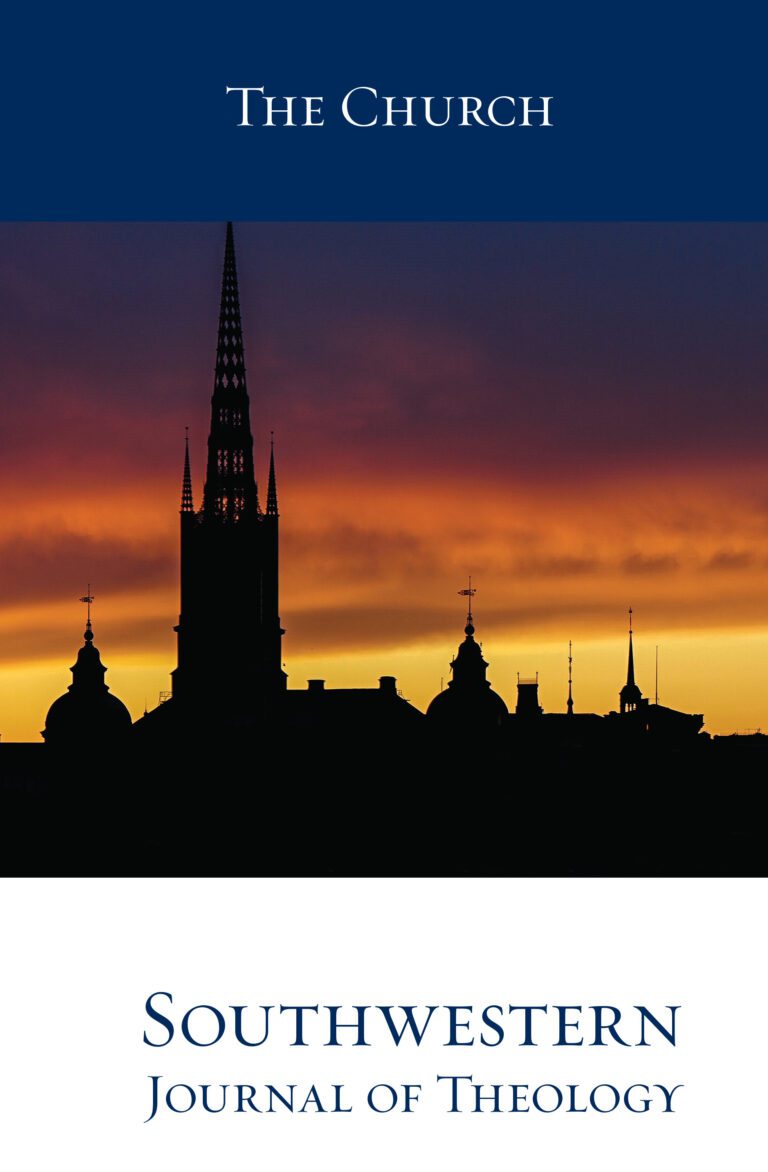
The Church
Southwestern Journal of Theology
Volume 61, No. 1 – Fall 2018
Editor: W. Madison Grace II
The doctrine of the Church is rarely ever the first doctrine pondered in theology. Christology, Theology Proper, and the Trinity rightfully are primary concerns. Yet in no way should this diminish the importance of the church and its teaching. The church has been an important concept for all of its history. The recipients of the early creeds and confessions of Christianity are addressed to the entity called the church. In almost every era there is a discussion about who is, or at least is in, this thing called the church. Great debate and schism still remain about particular functions of the church, such as Baptism or the Lord’s Supper. One only needs to rehearse the division between Luther and Zwingli on the Lord’s Supper to understand that beliefs about this practice are fundamental to one’s faith. The birth of the Baptist movement also is an example of the importance of ecclesiology, for it is the concern that led to their separation from other Christian traditions. John Smyth, for instance, devotes his work The Character of the Beast to the question of the constitution of the church. Historically, the concept of the church has been manifestly an important doctrine for Christianity.
For the greater part of the twentieth century there was not much concern with the doctrine of the church. Fortunately, there has been a recent turn back in these traditions to ecclesiology. In particular, the works of 9Marks stand out as a recent example, especially Mark Dever’s Nine Marks of the Healthy Church. Questions raised about the nature of the church, the Universal church and Local churches, membership in a church, Baptism, the Lord’s Supper, and Discipline, to name only a few concerns, are very important, not just in and of themselves but as they function in relation to the rest of theology and to the functioning of the Christian Life. Our theology is only improved by seriously considering these topics as they relate to the Christian faith.
The current issue is concerned with this need to engage ecclesiology. Though the articles that follow are varied, they all address the church in a significant way. In the first article, Jonathan Watson of Charleston Southern University considers the concept of the ongoing use of baptism and relates it to the Baptist theological tradition. Watson specifically shows to what extent, if any, Baptist systematic theologies have engaged the ongoing use of Baptism in their theology of Baptism. Following this article is an engagement with the Lord’s Supper written by Rustin Umstattd of Midwestern Baptist Theological Seminary. Herein he investigates the practices of the Lord’s Supper and suggests a different approach to the practice of the Lord’s Supper be considered. In particular, he argues that the Lord’s Supper may be best practiced as a part of a meal and not just as a symbol of a meal.
Following these two articles is an article by Robert Matz, also from Midwestern Baptist Theological Seminary. Matz considers previous research by Southern Baptists on the question of childhood development and the child’s ability to receive faith. A. Boyd Luter and Nicholas Dodson next present an article investigating the use of ἐκκλησία in the books of Matthew and Acts arguing for what they call a “Matthean Theological Priority.” Finally, Michael A.G. Haykin presents an historical article on the English Baptist James Hinton, detailing the persecution he suffered because of his social position as an English Dissenter. Following these articles are a variety of Book Reviews of recent works in Biblical Studies, Theology, Philosophy, and Practical Theology.





